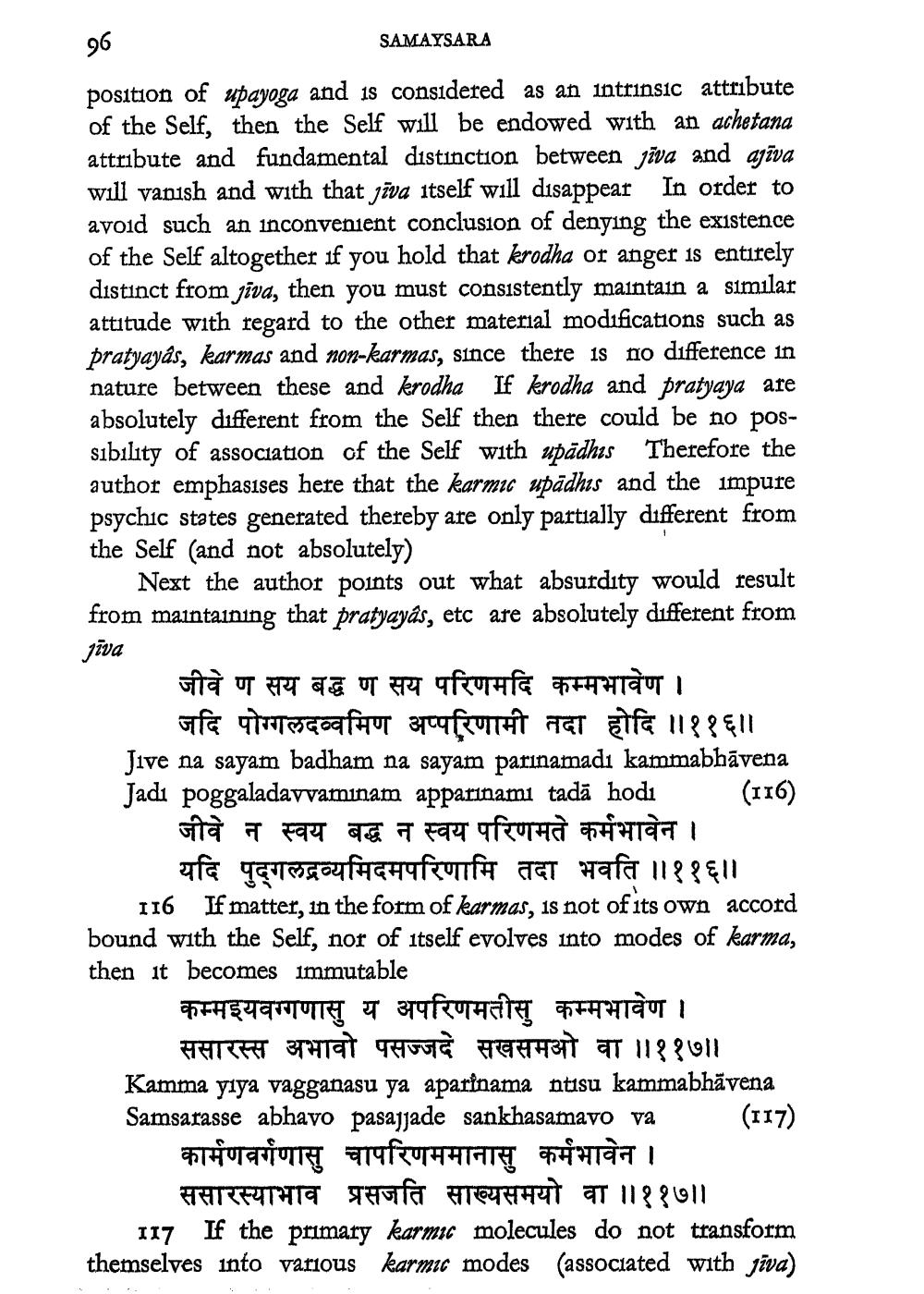________________
96
SAMAYSARA
position of upayoga and is considered as an intrinsic attribute of the Self, then the Self will be endowed with an achetana attribute and fundamental distinction between Jiva and ajava will vanish and with that giva itself will disappear In order to avoid such an inconvenient conclusion of denying the existence of the Self altogether if you hold that krodha or anger is entirely distinct from jiva, then you must consistently maintain a similar attitude with regard to the other material modifications such as pratyayas, karmas and non-karmas, since there is no difference in nature between these and krodha If krodha and pratyaya are absolutely different from the Self then there could be no possibility of association of the Self with upādhıs Therefore the author emphasises here that the karmic upādhis and the impure psychic states generated thereby are only partially different from the Self (and not absolutely)
Next the author points out what absurdity would result from maintaining that pratyayâs, etc are absolutely different from jiva
जीवे ण सय बद्ध ण सय परिणमदि कम्मभावेण ।
जदि पोग्गलदव्वमिण अप्परिणामी तदा होदि ॥११६॥ Jive na sayam badham na sayam parinamadı kammabhāvena Jadi poggaladavvamınam apparinami tadā hodi (116)
जीवे न स्वय बद्ध न स्वय परिणमते कर्मभावेन ।
यदि पुद्गलद्रव्यमिदमपरिणामि तदा भवति ॥११६॥ 116 If matter, in the form of karmas, is not of its own accord bound with the Self, nor of itself evolves into modes of karma, then it becomes immutable
कम्मइयवग्गणासु य अपरिणमतीसु कम्मभावेण ।
ससारस्स अभावो पसज्जदे सखसमओ वा ॥११७॥ Kamma yıya vagganasu ya aparinama ntisu kammabhāvena Samsarasse abhayo pasajjade sankhasamavo va (117)
कार्मणवर्गणासु चापरिणममानासु कर्मभावेन ।
ससारस्याभाव प्रसजति साख्यसमयो वा ॥११७॥ 117 If the primary karmic molecules do not transform themselves into various karmic modes (associated with jiva)




